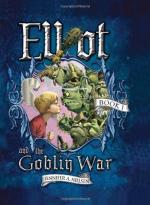Simple and honest as Jamie was, Black Jock’s plausibility appealed to him, and he began to think that Walker perhaps was not so bad as he was made to appear. Again, Jamie knew that Rundell was a man of hasty temper and impulsive judgments, and could not brook trouble, and he began to think that perhaps it might be better to hold the meeting as suggested and tell the men what he had heard, and appeal to them to go back to work.
“All right,” he said to Walker, “I’ll call a meeting to-night and put the case as you have said, and ask them to go back. But mind, you’ve not to go back on your promise. You’ll have to start Andrew and Geordie within twa days, or the men will no’ continue to work. Mind, I’m taking a lot on myself to do this, and you’ll have to carry out your part and start them.”
“I’ll fill my part, never fear,” was the answer, and there was relief in Walker’s voice. “See, there’s my hand,” he said, extending a big black limb as he spoke, first spitting on his palm to ensure due solemnity. “There’s no dryness about that, Jamie. I mean it. I’ll start Geordie and Andrew all right. You get the men to go back to work to-morrow, for I’m afraid Rundell will make trouble if you remain idle anither day. Noo’ I promise.” And Jamie took the extended hand in token of the bargain and returned to summon the meeting, which was duly held, and, as Walker had anticipated, the men were appeased, and returned to work the next day.
Sure enough, within two days Andrew Marshall and Geordie Sinclair were both started to work, and matters went smoothly for a time.
But though they had had a lesson, it did not stop their activities as agitators for the establishment of a union, for they knew that there was no protection for any of them if they remained unorganized.
“Men never were meant to work and live as colliers do,” said Geordie, thoughtfully. “Life should be good, and free, and happy, with comfort and enjoyment for all. Look at the birds—they are happy! So are the flowers, or they wouldn’t look so pleased. God meant a’ men and weemin to be glad, even though they have to work. But hoo’ the hell can folk be happy and worship God on two and sixpence a day? It’s all wrong, Andrew, an’ I’ll never believe that men were meant to live as we live.”
“That’s true, Geordie,” agreed Andrew soberly. “I only wish we could get everybody to see it as we see it. There’s plenty for a’ God’s creatures—enough to make everybody happy, an’ there need be no ill-will in the world, if only common-sense was applied to things; but I’m damn’d if I can see where even the men can be happy who are making their money oot o’ our lives. They’re bound to ken surely that what comes from misery can not make happiness for them.”
“True, Andrew, true, and we maun just go on working for it. Sometimes I have the feeling that we are on the point of big changes: just as if the folk would awaken up oot o’ their ignorance, with love in their hearts, an’ make all things right for everybody. A world o’ happiness for everybody is worth workin’ for. So we maun gang on.”




